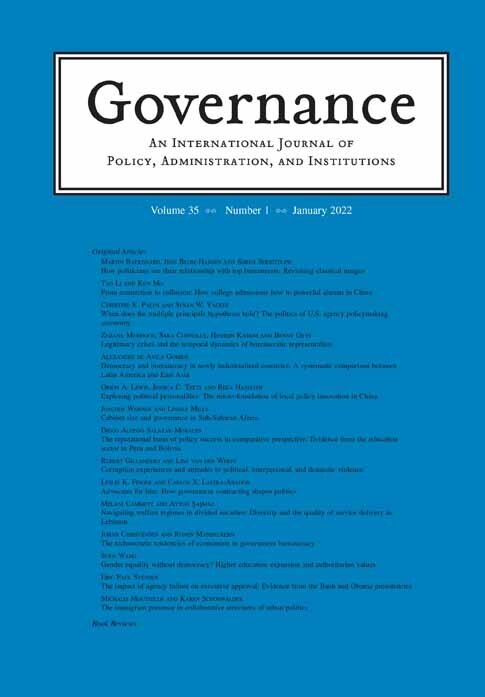Democracy and bureaucracy in newly industrialized countries: A systematic comparison between Latin America and East Asia
This article analyzes the political-institutional determinants of bureaucracy quality among a group of newly industrialized countries in Latin America and East Asia democratized in the Third Wave. Four causal conditions are examined for the occurrence of higher levels of bureaucratic “weberianess” in the selected cases: historical sequence, political parties' institutionalization, electoral competition, and ethnic politics. The study employs the fuzzy-set qualitative comparative analysis to explore the expectation that each of these conditions' implications depends on other conditions' presence or absence. The findings disconfirm claims about the critical role of party system institutionalization for Weberian bureaucracies in new democracies. Besides, the analysis did not declare a professional public administration's prior existence before democratization as a necessary or sufficient condition for the outcome of interest. Finally, although the electoral competition was declared necessary for the outcome occurrence, it does not imply the same result if combined with ethnic politics.
Democracy and bureaucracy in newly industrialized countries: A systematic comparison between Latin America and East Asia. GOVERNANCE-AN INTERNATIONAL JOURNAL OF POLICY ADMINISTRATION AND INSTITUTIONS, v. 35, p. 83-102, 2021.


